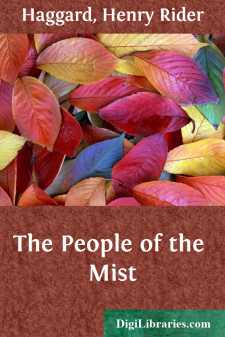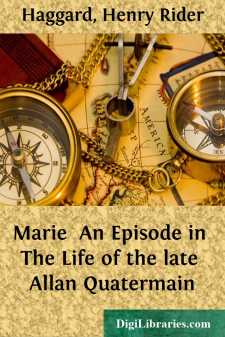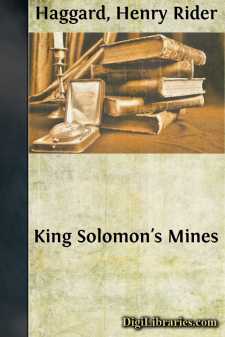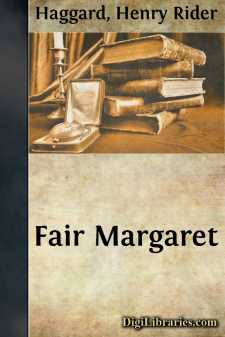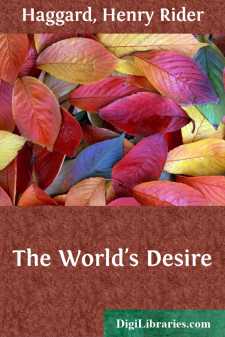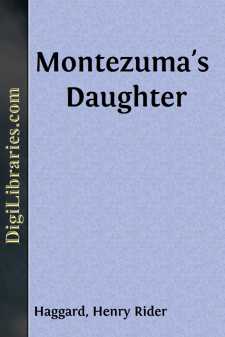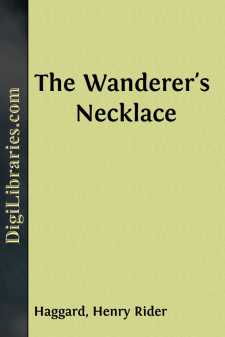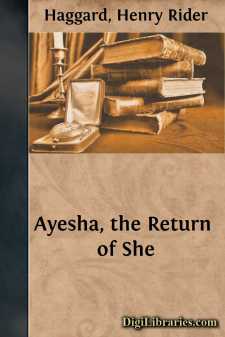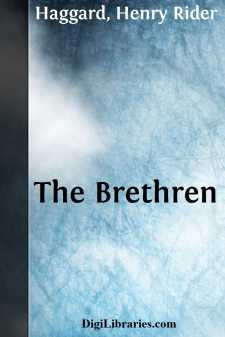Categories
- Antiques & Collectibles 13
- Architecture 36
- Art 48
- Bibles 22
- Biography & Autobiography 813
- Body, Mind & Spirit 142
- Business & Economics 28
- Children's Books 13
- Children's Fiction 10
- Computers 4
- Cooking 94
- Crafts & Hobbies 4
- Drama 346
- Education 46
- Family & Relationships 57
- Fiction 11828
- Games 19
- Gardening 17
- Health & Fitness 34
- History 1377
- House & Home 1
- Humor 147
- Juvenile Fiction 1873
- Juvenile Nonfiction 202
- Language Arts & Disciplines 88
- Law 16
- Literary Collections 686
- Literary Criticism 179
- Mathematics 13
- Medical 41
- Music 40
- Nature 179
- Non-Classifiable 1768
- Performing Arts 7
- Periodicals 1453
- Philosophy 64
- Photography 2
- Poetry 896
- Political Science 203
- Psychology 42
- Reference 154
- Religion 513
- Science 126
- Self-Help 84
- Social Science 81
- Sports & Recreation 34
- Study Aids 3
- Technology & Engineering 59
- Transportation 23
- Travel 463
- True Crime 29
Henry Rider Haggard
Henry Rider Haggard (1856-1925) was a prolific English writer best known for his adventure novels set in exotic locations, including "King Solomon's Mines" and "She." His works are considered early examples of the "Lost World" literary genre and often reflect themes of imperialism and exploration. Haggard's vivid storytelling and creation of enduring characters have left a lasting impact on popular literature and inspired numerous adaptations in various media.
Author's Books:
Sort by:
CHAPTER I THE SINS OF THE FATHER ARE VISITED ON THE CHILDREN The January afternoon was passing into night, the air was cold and still, so still that not a single twig of the naked beech-trees stirred; on the grass of the meadows lay a thin white rime, half frost, half snow; the firs stood out blackly against a steel-hued sky, and over the tallest of them hung a single star. Past these bordering firs...
more...
CHAPTER I. ALLAN LEARNS FRENCH Although in my old age I, Allan Quatermain, have taken to writing—after a fashion—never yet have I set down a single word of the tale of my first love and of the adventures that are grouped around her beautiful and tragic history. I suppose this is because it has always seemed to me too holy and far-off a matter—as holy and far-off as is that heaven which holds the...
more...
INTRODUCTION Now that this book is printed, and about to be given to the world, a sense of its shortcomings both in style and contents, weighs very heavily upon me. As regards the latter, I can only say that it does not pretend to be a full account of everything we did and saw. There are many things connected with our journey into Kukuanaland that I should have liked to dwell upon at length, which, as...
more...
CHAPTER I HOW PETER MET THE SPANIARD It was a spring afternoon in the sixth year of the reign of King Henry VII. of England. There had been a great show in London, for that day his Grace opened the newly convened Parliament, and announced to his faithful people—who received the news with much cheering, since war is ever popular at first—his intention of invading France, and of leading the English...
more...
PREFACE The period in which the story of The World's Desire is cast, was a period when, as Miss Braddon remarks of the age of the Plantagenets, "anything might happen." Recent discoveries, mainly by Dr. Schliemann and Mr. Flinders Petrie, have shown that there really was much intercourse between Heroic Greece, the Greece of the Achaeans, and the Egypt of the Ramessids. This connection,...
more...
CHAPTER I WHY THOMAS WINGFIELD TELLS HIS TALE Now glory be to God who has given us the victory! It is true, the strength of Spain is shattered, her ships are sunk or fled, the sea has swallowed her soldiers and her sailors by hundreds and by thousands, and England breathes again. They came to conquer, to bring us to the torture and the stake—to do to us free Englishmen as Cortes did by the Indians of...
more...
CHAPTER I THE BETROTHAL OF OLAF Of my childhood in this Olaf life I can regain but little. There come to me, however, recollections of a house, surrounded by a moat, situated in a great plain near to seas or inland lakes, on which plain stood mounds that I connected with the dead. What the dead were I did not quite understand, but I gathered that they were people who, having once walked about and been...
more...
Verily and indeed it is the unexpected that happens! Probably if there was one person upon the earth from whom the Editor of this, and of a certain previous history, did not expect to hear again, that person was Ludwig Horace Holly. This, too, for a good reason; he believed him to have taken his departure from the earth. When Mr. Holly last wrote, many, many years ago, it was to transmit the manuscript...
more...
CHAPTER I THE COMING OF THE RING Every one has read the monograph, I believe that is the right word, of my dear friend, Professor Higgs—Ptolemy Higgs to give him his full name—descriptive of the tableland of Mur in North Central Africa, of the ancient underground city in the mountains which surrounded it, and of the strange tribe of Abyssinian Jews, or rather their mixed descendants, by whom it is,...
more...
Salah-ed-din, Commander of the Faithful, the king Strong to Aid, Sovereign of the East, sat at night in his palace at Damascus and brooded on the wonderful ways of God, by Whom he had been lifted to his high estate. He remembered how, when he was but small in the eyes of men, Nour-ed-din, king of Syria, forced him to accompany his uncle, Shirkuh, to Egypt, whither he went, "like one driven to his...
more...


